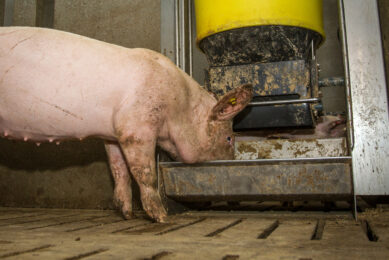A first in 12 years: EU clears GM crop
The European Commission has approved five genetically modified (GM) crops on Tuesday. It might let EU countries decide whether or not they grow GM crops on their soil.
For the first time in 12 years a crop was approved for cultivation. The Commission authorised to grow a genetically modified potato, Amflora, developed by German chemical maker BASF.
It is not allowed to grow the potato for human consumption, but for purposes such as animal feed or paper making.
Cross-contamination
“The decision provides for strict cultivation conditions to prevent the possibility that GM potatoes will remain in the fields after harvest and to ensure that Amflora’s seed will not be inadvertently disseminated into the wider environment,” the Commission said, in a bid to allay fears of cross-contamination.
The crop will likely be grown on 250 hectares in Europe, 150 hectares of which is in the Czech Republic, BASF said.
Imports of GM maize approved
The European Commission also approved three genetically modified maize types, MON863xMON810, MON863xMON810xNK603 and MON863xNK603, all made by US biotech firm Monsanto for food and feed uses and import and processing in the European Union.
The EU executive said it plans to announce proposals by summer that would, if approved, allow governments to decide whether genetically modified crops can be grown within their borders.
Support for GM crops
The announcement of the European Commission is not a real surprise. José Manuel Barroso http://ec.europa.eu/commission_2010-2014/president/index_en.htm, known for his strong support for GM, has been renewed for five years as head of the Commission.
The Commission’s decision to approve the genetically modified potato and maize drew condemnation from environmental groups which accused the EU’s executive arm of ignoring consumer concerns over the safety of GM products.
Use of GM crops
The use of genetically modified crops is not allowed within the European Union, despite a strong lobby from the feed and livestock industries to allow it. With expected sharp global population increase, the demand to meat, food and feed will rise sharply as well.
Creating larger yields from crop surface could be contributing to find a solution to the demand problem. For reasons of guaranteeing natural zones for wild animals, even the World Wildlife Fund is known to endorse the use of GM crops.
Related websites:
• European Commission
• Monsanto
• BASF
• World Wildlife Fund











